
Yate: A Hidden Gem in New Caledonia
Nestled in the southeastern part of New Caledonia, Yate is a small town that offers a unique blend of natural beauty, cultural richness, and tranquility. This hidden gem provides an off-the-beaten-path experience, making it a perfect destination for those looking to escape the hustle and bustle of city life. Yate is renowned for its breathtaking landscapes, including the famous Blue River Provincial Park. This park is a paradise for nature lovers, featuring stunning waterfalls, lush rainforests, and a rich variety of flora and fauna. The park's centerpiece, the Blue River, is a must-see with its striking turquoise waters that create a mesmerizing contrast against the surrounding greenery. In addition to its natural wonders, Yate is steeped in Kanak culture. Visitors can explore traditional villages and engage with the local community to learn about their customs and way of life. The town also offers a range of outdoor activities such as hiking, fishing, and bird watching, making it an ideal spot for adventure enthusiasts. Whether you're looking to immerse yourself in nature, discover new cultures, or simply unwind, Yate in New Caledonia has something for everyone. Its serene environment, coupled with the warmth and hospitality of its people, will leave you with unforgettable memories.
Local tips in Yate
- Visit the Blue River Provincial Park early in the morning to avoid crowds and enjoy the tranquil beauty.
- Bring insect repellent, especially if you plan to explore the rainforests or go hiking.
- Engage with the local Kanak community to gain a deeper understanding of their culture and traditions.
- Pack comfortable walking shoes as many of the attractions involve a fair amount of walking.
- Carry a refillable water bottle to stay hydrated, especially during outdoor activities.
Yate: A Hidden Gem in New Caledonia
Nestled in the southeastern part of New Caledonia, Yate is a small town that offers a unique blend of natural beauty, cultural richness, and tranquility. This hidden gem provides an off-the-beaten-path experience, making it a perfect destination for those looking to escape the hustle and bustle of city life. Yate is renowned for its breathtaking landscapes, including the famous Blue River Provincial Park. This park is a paradise for nature lovers, featuring stunning waterfalls, lush rainforests, and a rich variety of flora and fauna. The park's centerpiece, the Blue River, is a must-see with its striking turquoise waters that create a mesmerizing contrast against the surrounding greenery. In addition to its natural wonders, Yate is steeped in Kanak culture. Visitors can explore traditional villages and engage with the local community to learn about their customs and way of life. The town also offers a range of outdoor activities such as hiking, fishing, and bird watching, making it an ideal spot for adventure enthusiasts. Whether you're looking to immerse yourself in nature, discover new cultures, or simply unwind, Yate in New Caledonia has something for everyone. Its serene environment, coupled with the warmth and hospitality of its people, will leave you with unforgettable memories.
When is the best time to go to Yate?
Iconic landmarks you can’t miss
Place des Cocotiers
Discover tranquility at Place des Cocotiers, a lush green oasis in Nouméa, perfect for relaxation, picnics, and soaking in local culture.
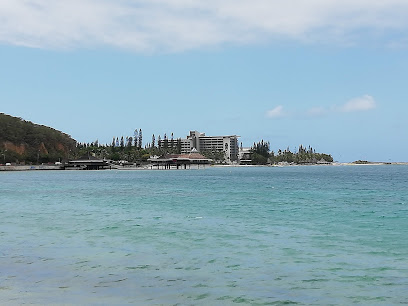
Lagoon Aquarium
Explore the vibrant marine life of New Caledonia at the Lagoon Aquarium, an unforgettable family-friendly attraction in Nouméa.
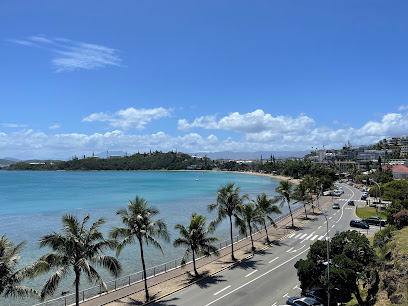
Tjibaou Cultural Centre
Immerse yourself in the rich Kanak culture at the Tjibaou Cultural Centre, an architectural masterpiece in Nouméa, New Caledonia.
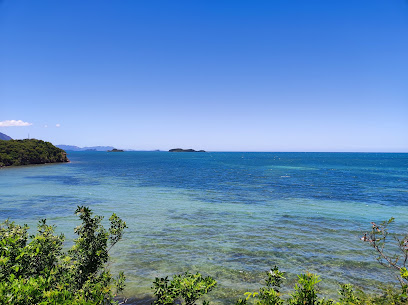
Amédée Lighthouse
Discover the breathtaking views and rich maritime history at Amédée Lighthouse, a must-visit attraction in New Caledonia's stunning coastal landscape.
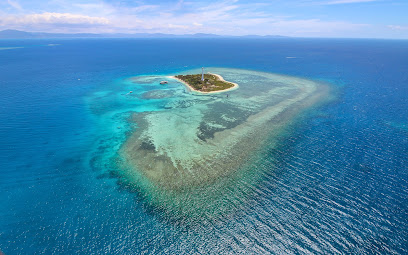
Parc Zoologique Et Forestier Michel Corbasson
Immerse yourself in nature and wildlife at Parc Zoologique Et Forestier Michel Corbasson, a unique animal park in the heart of New Caledonia.
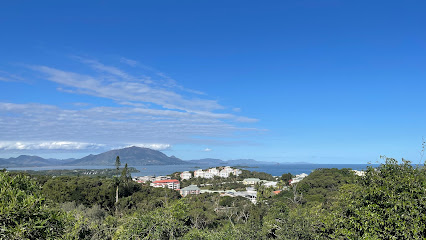
Blue River Provincial Park
Explore Blue River Provincial Park in New Caledonia, a haven of biodiversity and stunning landscapes perfect for adventure and relaxation.
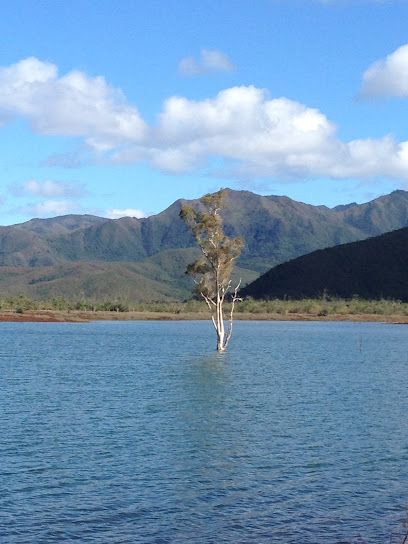
Maritime Museum of New Caledonia
Explore New Caledonia's vibrant maritime history at the Maritime Museum, where oceanic heritage meets cultural significance in the heart of Nouméa.
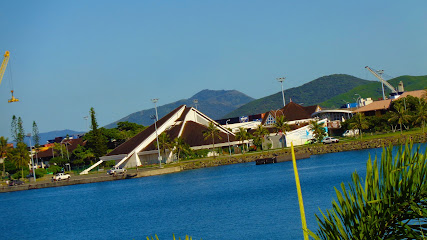
Fort Teremba
Explore Fort Teremba: A historical landmark and heritage museum in New Caledonia, offering a glimpse into the island's fascinating past.
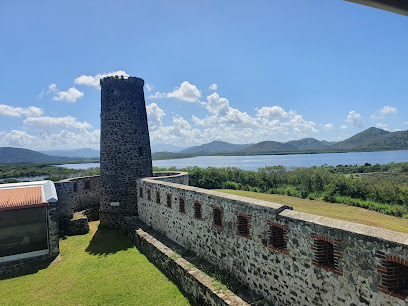
La Madeleine Waterfalls
Explore the enchanting La Madeleine Waterfalls in Yate, New Caledonia, a stunning natural landmark perfect for adventure and relaxation.
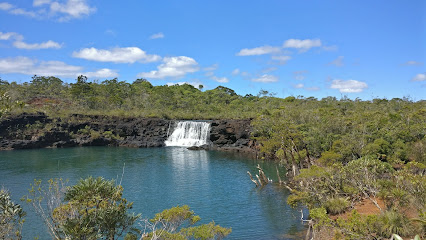
Musée de Nouvelle Calédonie
Explore the rich heritage and vibrant art of New Caledonia at the Musée de Nouvelle Calédonie, a must-see cultural attraction in Nouméa.
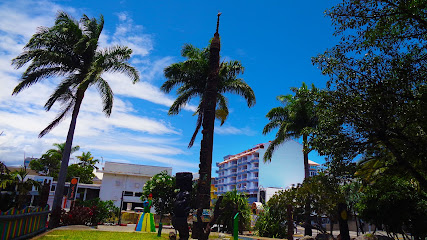
Château Hagen
Experience the rich cultural heritage of New Caledonia at Château Hagen, a captivating cultural center in the heart of Nouméa, showcasing local art and history.
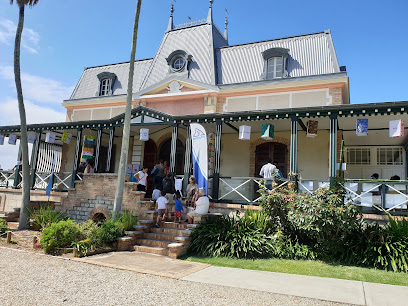
Wadiana Falls
Discover the enchanting beauty of Wadiana Falls in New Caledonia, a breathtaking natural wonder perfect for nature lovers and adventure seekers.
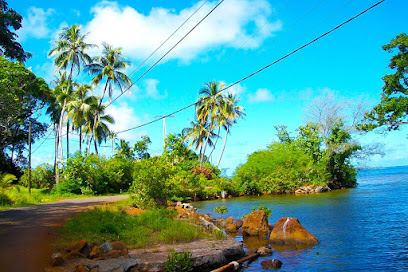
Notre Dame Du Pacifique
Explore the stunning architectural beauty and serene atmosphere of Notre Dame Du Pacifique in Nouméa, a must-visit destination for every traveler in New Caledonia.
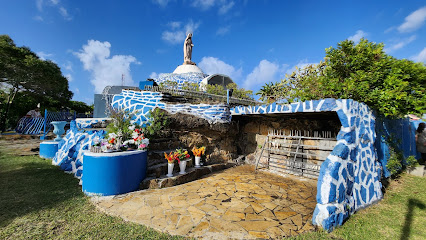
Lac de Yaté
Discover the tranquil beauty of Lac de Yaté, a breathtaking freshwater lake in New Caledonia, perfect for nature lovers and outdoor enthusiasts.
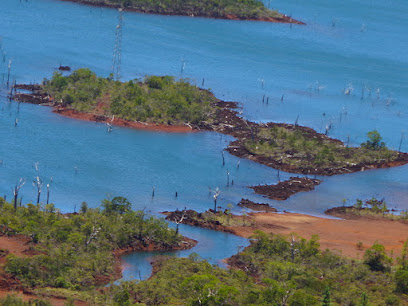
Trou bleu Yaté
Explore Trou Bleu Yaté: a breathtaking hiking haven in New Caledonia with stunning vistas, serene waters, and lush trails for all adventurers.
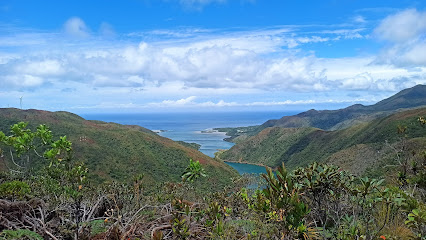
Unmissable attractions to see
Parc provincial des Grandes Fougères
Explore the breathtaking beauty of Parc Provincial des Grandes Fougères, a national park in New Caledonia filled with unique flora and serene landscapes.
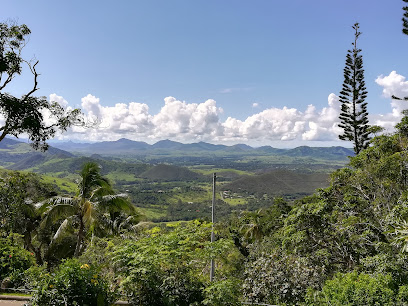
Jinek Bay
Experience the serene beauty of Jinek Bay in New Caledonia, where turquoise waters meet lush landscapes for unforgettable adventures.
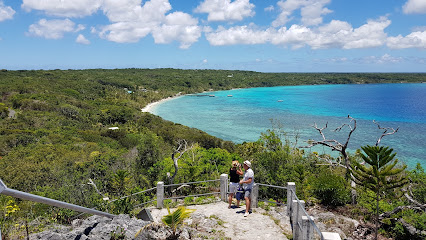
Le Saut Du Guerrier
Discover the stunning vistas and tranquil ambiance at Le Saut Du Guerrier, a must-visit observation deck in Wakone, New Caledonia.
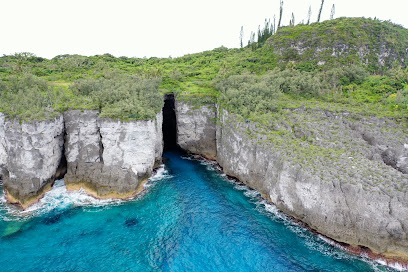
Monument de balade
Explore the rich history and stunning beauty of New Caledonia at the Monument de Balade, a captivating landmark in Balade.
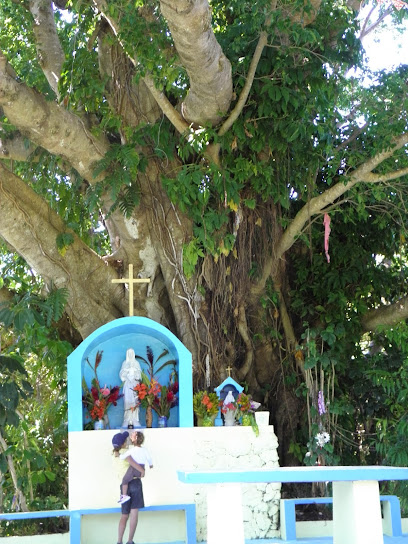
Essential places to dine
Stone Grill
Experience exquisite dining at Stone Grill in Anse Vata, where delectable steaks meet stunning ocean views in New Caledonia.
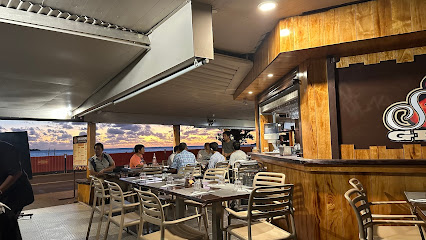
Mamma mia
Experience authentic Italian flavors at Mamma Mia in Nouméa's Baie des Citrons - where every dish tells a story.
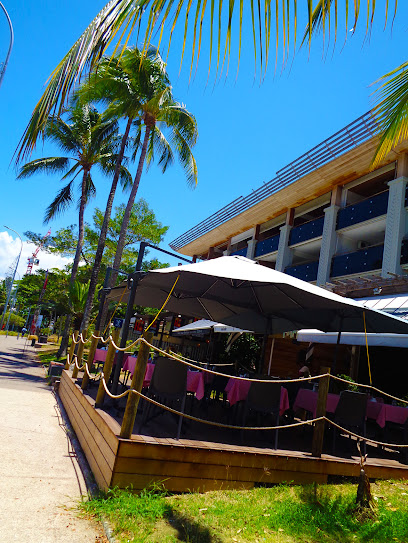
Casa Italia
Experience authentic Italian cuisine at Casa Italia in Nouméa – where tradition meets taste amidst stunning coastal views.
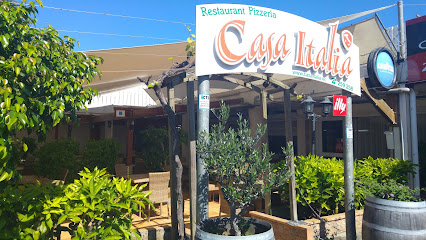
La Table des Gourmets
Experience the finest French cuisine at La Table des Gourmets in Nouméa, where culinary excellence meets local flavor.
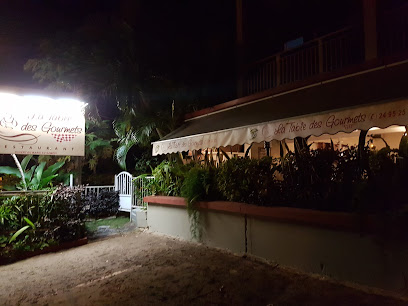
Tierra de Fuego
Experience the vibrant flavors of South America at Tierra de Fuego in Nouméa—where culinary passion meets tropical delight.
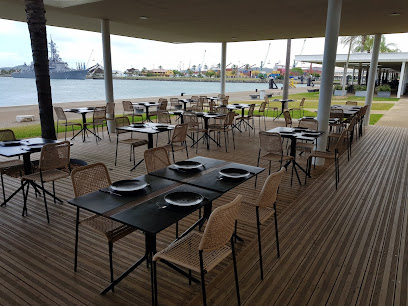
Restaurant La Chaumière
Experience authentic French cuisine at Restaurant La Chaumière in Nouméa - a culinary gem offering exquisite dishes and delightful ambiance.
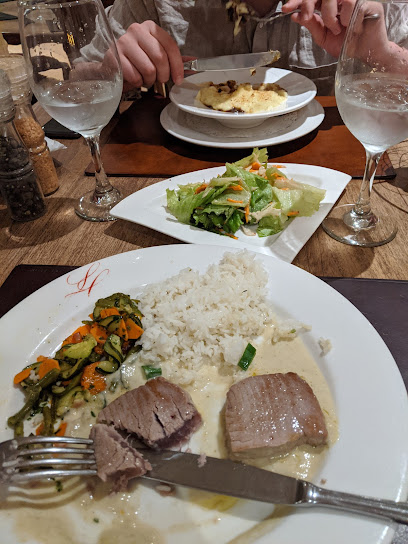
Au Filao Ile aux Canards Restaurant Nouméa
Experience the authentic tastes of New Caledonia at Au Filao Ile aux Canards Restaurant, where stunning views meet delicious local cuisine.
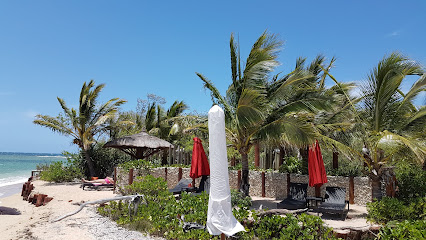
Le Ponton
Discover Le Ponton in Nouméa - where stunning ocean views meet exquisite local cuisine for an unforgettable dining experience.
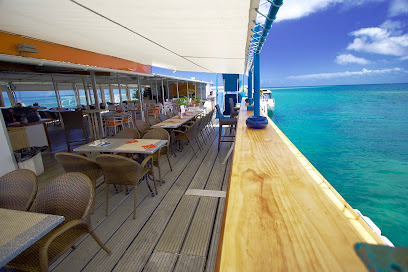
La Pirogue
Discover La Pirogue: Nouméa's culinary gem offering breathtaking ocean views and exquisite local flavors.
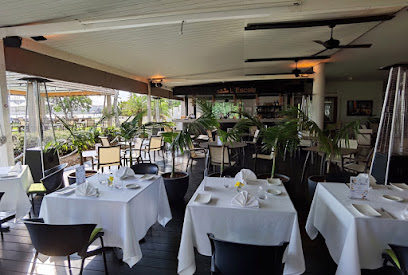
The Harlequin
Experience exquisite local cuisine at The Harlequin in Nouméa – where culinary art meets breathtaking views.
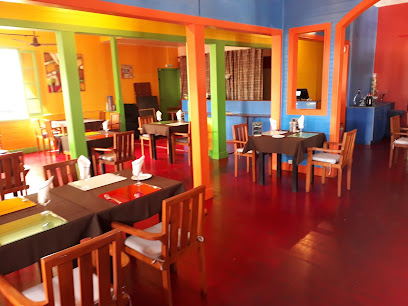
Restaurant Manuia
Experience exquisite New Caledonian cuisine at Restaurant Manuia with stunning views of Anse Vata's lagoon.
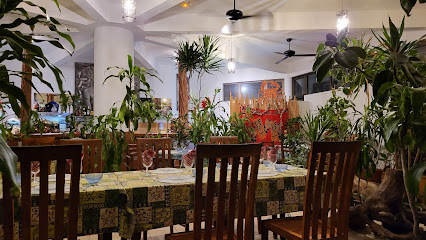
La Gavotte
Experience the best of New Caledonian cuisine at La Gavotte in Nouméa - where every dish tells a story.
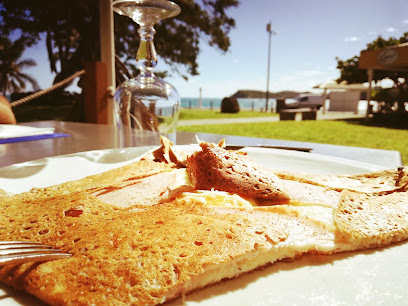
Restaurant Les Bouches Des Gouts
Discover exquisite local flavors at Restaurant Les Bouches Des Gouts in Nouméa, where culinary art meets breathtaking coastal views.
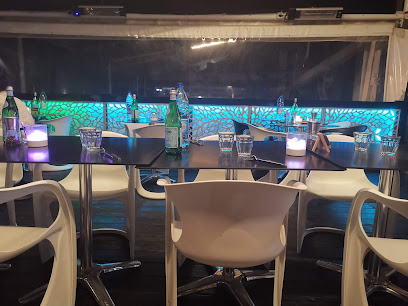
Le Relais de la Vallée 2.0
Experience authentic French cuisine in the heart of Nouméa at Le Relais de la Vallée 2.0 – where taste meets tradition.
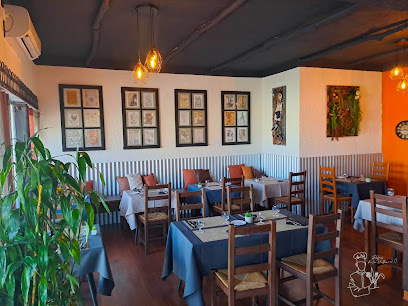
Chai de l'Hippodrome
Discover Chai de l'Hippodrome in Nouméa - where exquisite wines meet delightful local cuisine in an inviting atmosphere.
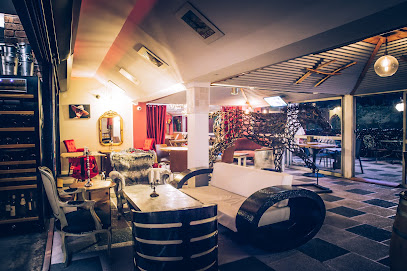
Markets, malls and hidden boutiques
Baie Des Citrons Shopping Complex
Explore the Baie Des Citrons Shopping Complex for a unique blend of shopping, dining, and vibrant local culture in beautiful Nouméa.
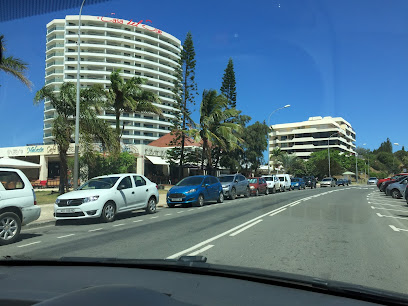
Kenu-In Shopping Mall
Experience the vibrant shopping and cultural scene at Kenu-In Shopping Mall in Nouméa, New Caledonia, where local charm meets global brands.
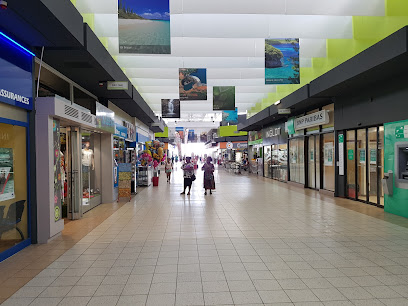
IDEFIX
Explore IDEFIX in Nouméa for unique gifts, local crafts, and a vibrant selection of beads and yarn to elevate your crafting experience.
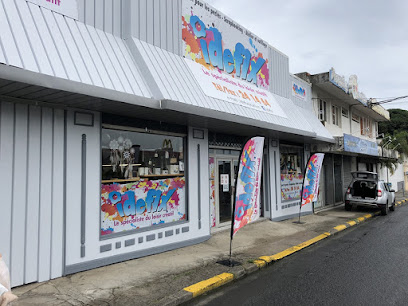
Maison de la Perle
Discover the exquisite beauty of New Caledonia at Maison de la Perle, renowned for its stunning pearl jewelry and exceptional craftsmanship.
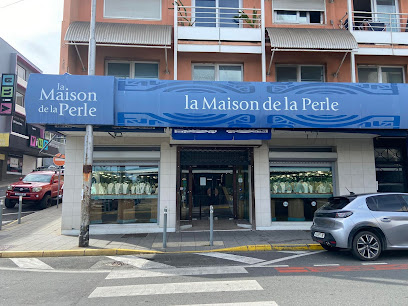
La Villa Cachée
Explore La Villa Cachée: A vibrant gift shop and Aboriginal art gallery in Nouméa, offering unique souvenirs and cultural treasures.
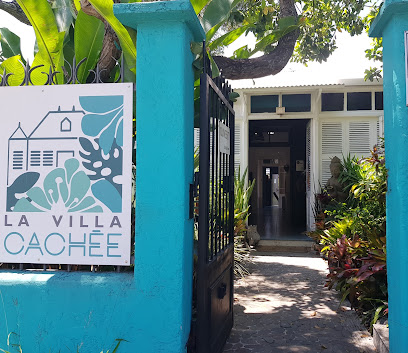
TELLE MÈRE, TELLE FILLE Dépôt vente & Achat Nouméa
Explore sustainable fashion at Telle Mère, Telle Fille, Nouméa's premier consignment shop offering unique women's clothing and accessories.
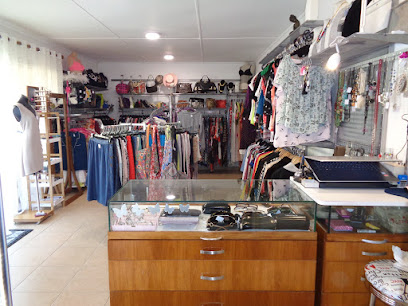
ALEA NC
Explore the charm of New Caledonia at ALEA NC, your ultimate destination for unique gifts, linens, and home goods that capture the island's spirit.
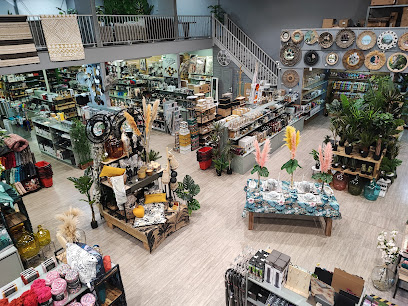
Trou bleu Yaté
Experience the breathtaking beauty of Trou Bleu Yaté, a serene hiking haven in New Caledonia, perfect for nature lovers and adventure seekers.
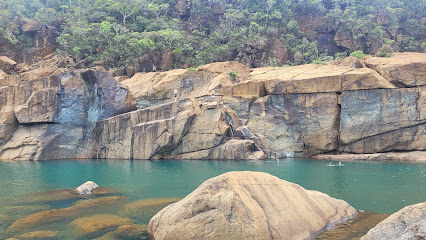
Les Arts du Pacifique - Anse Vata
Explore Les Arts du Pacifique in Anse Vata for unique gifts and handicrafts that embody the vibrant culture of New Caledonia.
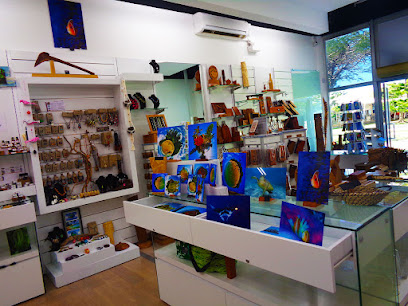
CHÈQUE CADEAU CALÉDONIEN - La Boutique Cadeau
Explore the charm of CHÈQUE CADEAU CALÉDONIEN in Nouméa, featuring unique gifts that embody the spirit of New Caledonia.
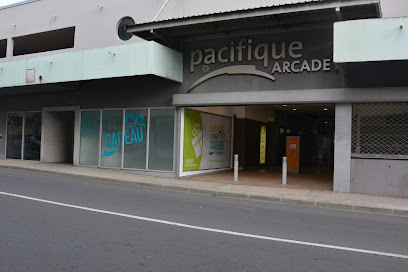
ONO Factory
Explore ONO Factory, a unique gift shop in New Caledonia offering handcrafted souvenirs and local honey, perfect for every traveler.
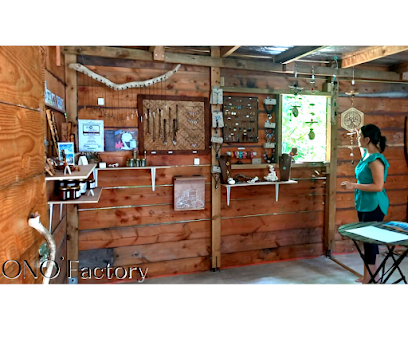
Boutique Zabar
Explore the vibrant world of fashion at Boutique Zabar, Nouméa's premier destination for stylish clothing and unique accessories.
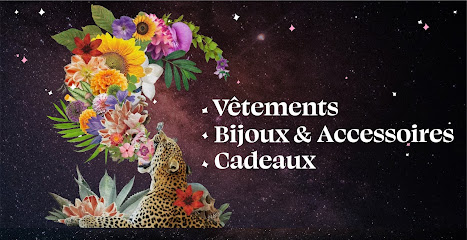
Tricot Rayé
Explore Tricot Rayé in Nouméa for a unique blend of local fashion and vibrant styles, perfect for capturing the essence of New Caledonia.
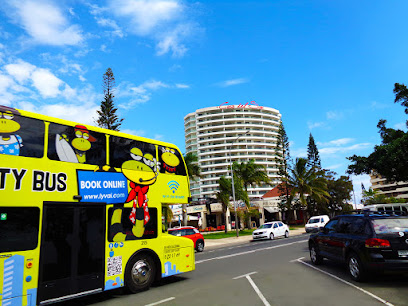
ZIG ZAG
Discover unique gifts and local treasures at ZIG ZAG, Nouméa's premier destination for candles, accessories, and more.
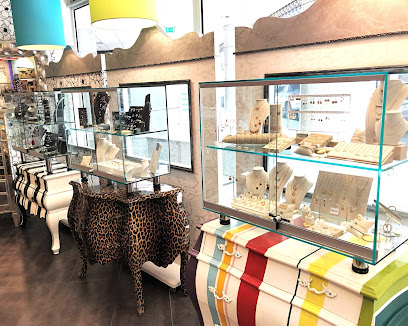
ESCAPE NEW CALEDONIA - THULE
Explore the best in car accessories, camping gear, and marine supplies at ESCAPE NEW CALEDONIA - THULE for your ultimate adventure in New Caledonia.
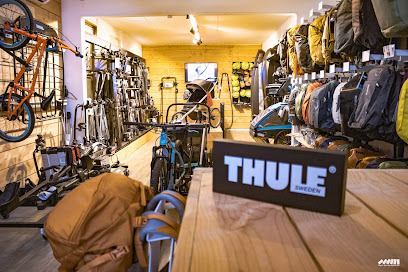
Essential bars & hidden hideouts
Le Roof
Experience the flavors of New Caledonia at Le Roof, a waterfront restaurant in Nouméa known for its fresh seafood and stunning views.
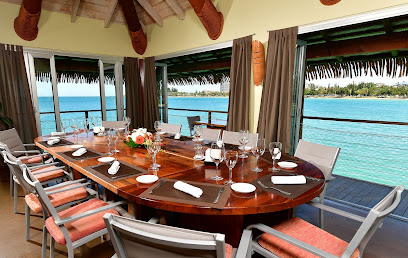
La Bodega del Mar
Discover the culinary charm of La Bodega del Mar, a vibrant tapas bar in Nouméa, offering stunning views and a delightful menu of shareable plates.
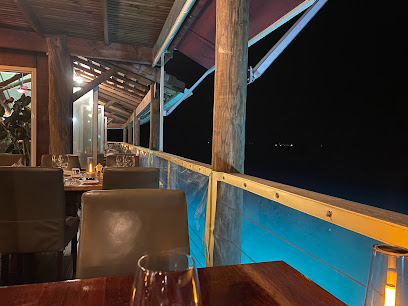
L'Atelier Gourmand
Experience the fusion of French culinary artistry and local flavors at L'Atelier Gourmand in Nouméa, a must-visit for food enthusiasts.
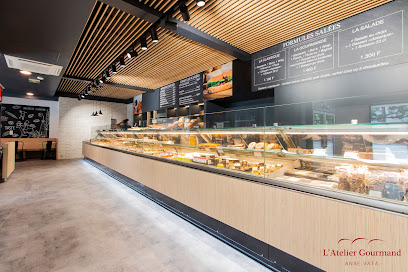
Le Faré du Palm Beach
Experience the fusion of local flavors and breathtaking ocean views at Le Faré du Palm Beach in Nouméa, New Caledonia.
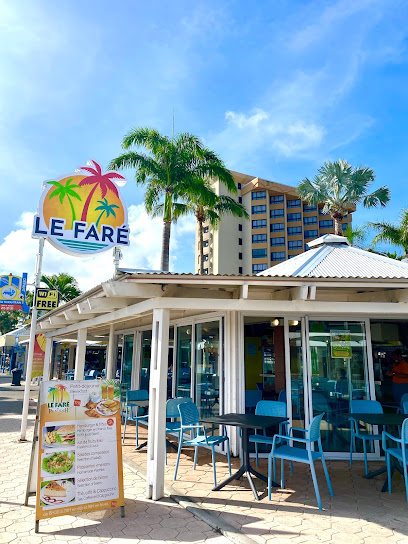
Lemon Bay Cafe
Experience the culinary delights of Lemon Bay Cafe in Nouméa, where local flavors meet breathtaking views in a relaxed atmosphere.
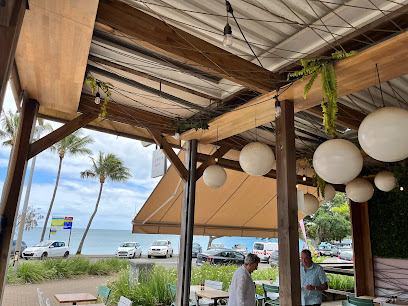
La Table des Gourmets
Experience the culinary artistry of New Caledonia at La Table des Gourmets, where local flavors meet exquisite dining in the heart of Nouméa.
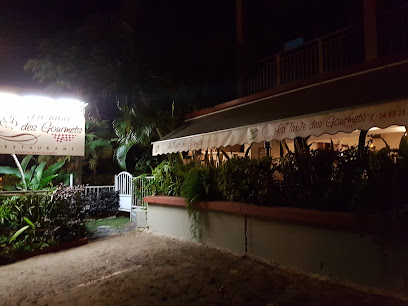
Single Fin
Experience stunning sunsets and vibrant flavors at Single Fin, the ultimate bar and restaurant in the heart of Nouméa's Baie des Citrons.
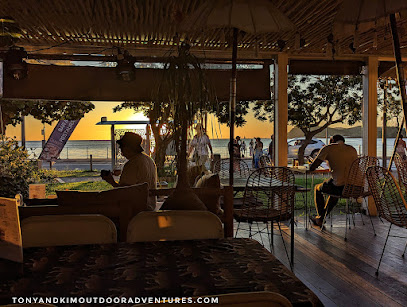
Le Faré
Discover the vibrant flavors and stunning views at Le Faré, a tropical bar and restaurant in Nouméa, New Caledonia.
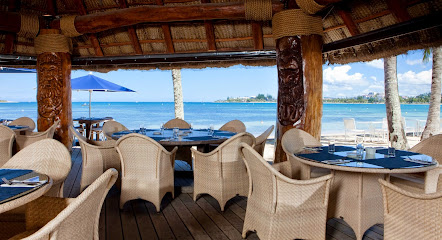
Le Jasmin
Experience the flavors of New Caledonia at Le Jasmin, a delightful restaurant in La Foa known for its diverse menu and welcoming atmosphere.
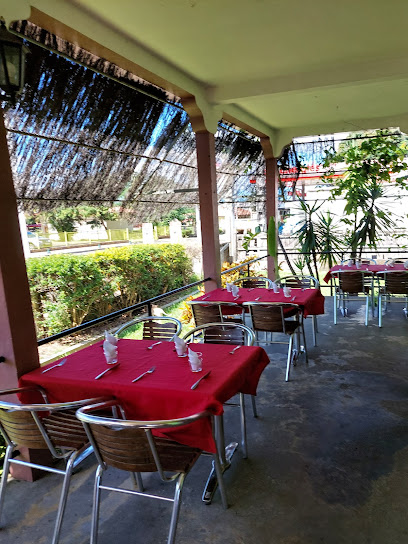
L'Etrave
Discover the vibrant atmosphere and stunning views at L'Etrave, Nouméa's premier bar for relaxation and nightlife.
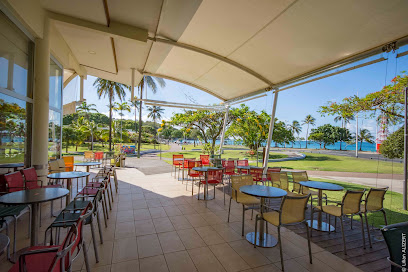
Iles des canards
Discover Iles des Canards, a culinary gem in New Caledonia, offering fresh local flavors and breathtaking island views for an unforgettable dining experience.
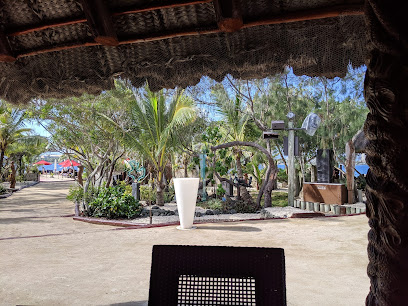
La dolce vita
Experience the authentic taste of Italy at La Dolce Vita in Nouméa, New Caledonia, where traditional flavors meet warm hospitality.
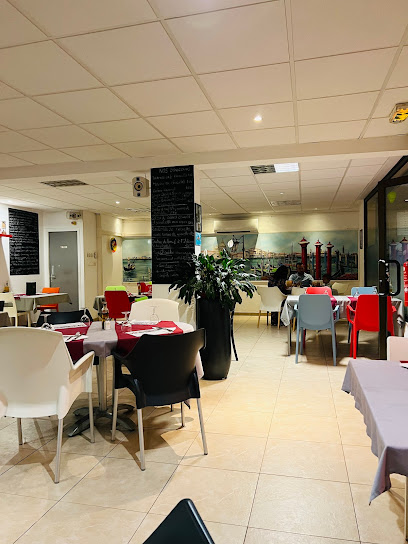
Creek Bar
Experience the vibrant atmosphere of Creek Bar in New Caledonia, where refreshing drinks and local flavors meet stunning views and friendly vibes.
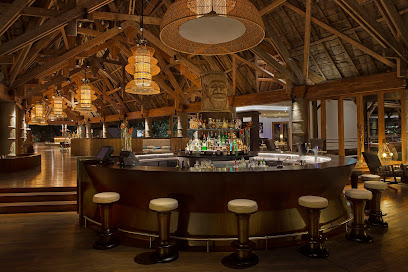
Public House Noumea
Discover the vibrant nightlife at Public House Noumea, where great drinks, delicious food, and local culture come together in a stunning setting.
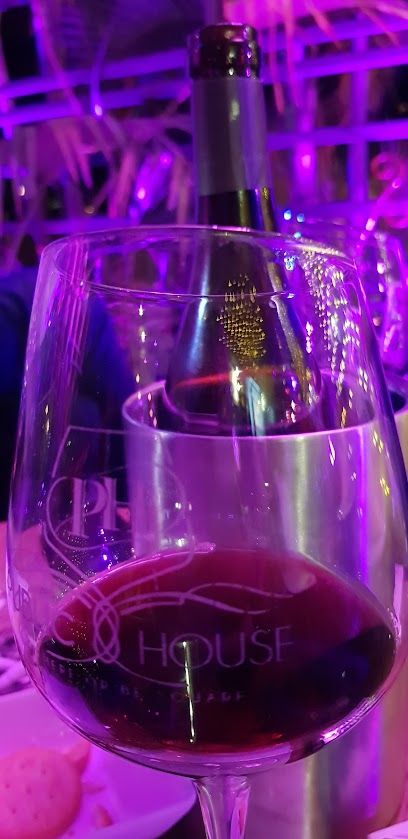
Local Phrases about Yate
-
- HelloBoujou
[boh-zhoo] - GoodbyeAurevoir
[oh-reh-vwahr] - YesOui
[wee] - NoNon
[nohn] - Please/You're welcomeS'il vous plaît/De rien
[seel voo pleh/dee ryen] - Thank youMerci
[mehr-see] - Excuse me/SorryExcusez-moi/Désolé
[ex-kew-zay mwah/dey-zoh-lay] - How are you?Comment ça va?
[koh-mohn sah vah] - Fine. And you?Bien. Et toi?
[byen/eh twah] - Do you speak English?Parlez-vous anglais?
[par-lay voo ahn-glay] - I don't understandJe ne comprends pas
[zhuh nuh kohm-prahnd pah]
- HelloBoujou
-
- I'd like to see the menu, pleaseJe voudrais voir le menu, s'il vous plaît
[zhuh voo-dray vwahr luh meh-nyoo/seel voo pleh] - I don't eat meatJe ne mange pas de viande
[zhuh nuh mahnj pah duh vyand] - Cheers!Santé!
[sahn-tay] - I would like to pay, pleaseJe voudrais payer, s'il vous plaît
[zhuh voo-dray pay-ay/seel voo pleh]
- I'd like to see the menu, pleaseJe voudrais voir le menu, s'il vous plaît
-
- Help!Au secours!
[oh seh-koor] - Go away!Allez-vous en!
[ah-lay vooz ahn] - Call the Police!Appelez la police!
[ah-puh-lay lah po-lees] - Call a doctor!Appelez un médecin!
[ah-puh-lay uh mayd-sahn] - I'm lostJe suis perdu
[zhuh swee pehr-doo] - I'm illJe suis malade
[zhuh swee mah-lahd]
- Help!Au secours!
-
- I'd like to buy...Je voudrais acheter...
[zhuh voo-dray zheh-tay] - I'm just lookingJe regarde juste
[zhuh ruh-gahrd zheust] - How much is it?Combien ça coûte?
[kohn-byen sah koot] - That's too expensiveC'est trop cher
[say troh shair] - Can you lower the price?Pouvez-vous baisser le prix?
[poo-vez voo bay-say luh pree]
- I'd like to buy...Je voudrais acheter...
-
- What time is it?Quelle heure est-il?
[kell uh-reh eh-teel] - It's one o'clockIl est une heure
[eel eh oon uh-reh] - Half past (10)Dix heures et demie
[dees uh-reh eh duh-mee] - MorningMatin
[mah-tahn] - AfternoonAprès-midi
[ah-pray mee-dee] - EveningSoir
[swahr] - YesterdayHier
[ee-yehr] - TodayAujourd'hui
[oh-zhoor-dwee] - TomorrowDemain
[duh-mahn] - 1Un
[uhn] - 2Deux
[duh] - 3Trois
[twah] - 4Quatre
[kah-truh] - 5Cinq
[sank] - 6Six
[sees] - 7Sept
[set] - 8Huit
[weet] - 9Neuf
[nuff] - 10Dix
[dees]
- What time is it?Quelle heure est-il?
-
- Where's a/the...?Où est...?
[oo eh] - What's the address?Quelle est l'adresse?
[kell eh lah-dress] - Can you show me (on the map)?Pouvez-vous me montrer (sur la carte)?
[poo-vez voo muh mohn-tray/sur lah kart] - When's the next (bus)?Quand est le prochain (bus)?
[kahn eh luh proh-shahn] - A ticket (to ....)Un billet (pour ....)
[uhn bee-yay/poor]
- Where's a/the...?Où est...?
History of Yate
-
Yate, like much of New Caledonia, has been inhabited by the indigenous Kanak people for thousands of years. The Kanak culture is rooted in a deep connection to the land and sea, with Yate being no exception. Traditional Kanak communities in Yate practiced subsistence farming, fishing, and hunting, and they lived in harmony with the natural environment. Their customs, folklore, and way of life continue to influence the cultural landscape of Yate to this day.
-
In 1774, the British explorer Captain James Cook became one of the first Europeans to sight the shores of New Caledonia. Although Cook did not land in Yate specifically, his exploration marked the beginning of European interest in the region. Subsequent visits by European explorers and missionaries led to increased contact between the indigenous Kanak people and Europeans, forever altering the social and cultural dynamics of Yate.
-
The late 19th and early 20th centuries saw New Caledonia, including Yate, become a French colony. This period was marked by significant changes, including the introduction of nickel mining, which remains one of the region's most important industries. The construction of the Yate Dam in the 1950s was a major development, providing hydroelectric power and altering the landscape of the area. The dam's creation also led to the formation of the Yate Lake, a popular spot for fishing and tourism today.
-
During World War II, New Caledonia, including Yate, played a strategic role in the Pacific theater. The island served as an important base for Allied forces, with its location providing a critical point for operations against Japanese forces. Although Yate itself did not see direct combat, the war brought significant military presence and infrastructure development to the region, impacting the local economy and daily life.
-
In recent decades, there has been a strong movement towards cultural revival and preservation among the Kanak people of Yate. Efforts to maintain traditional practices, languages, and customs have been supported by both local communities and the broader New Caledonian government. Modern Yate is a blend of ancient traditions and contemporary influences, with vibrant cultural festivals, traditional crafts, and a deep respect for the natural environment. Visitors to Yate can experience this unique fusion through various cultural tours, local markets, and interactions with the friendly Kanak community.
Yate Essentials
-
Yate is located in the southern part of New Caledonia's main island, Grande Terre. The nearest international airport is La Tontouta International Airport, approximately 80 kilometers northwest of Yate. From the airport, you can rent a car and drive to Yate, which takes around 2 hours. Alternatively, you can take a taxi or a shuttle service to Noumea, the capital city, and then take a bus or hire a car for the remaining journey to Yate.
-
Yate is a small town with limited public transportation options. Renting a car is the most convenient way to explore the area and its surroundings. Local buses are available but operate infrequently. Taxis can be found in the town, but it's advisable to arrange them in advance. Biking is also a popular option for short distances, and some accommodations offer bike rentals.
-
The official currency in New Caledonia is the CFP Franc (XPF). Credit cards are accepted in some hotels, restaurants, and shops, but it is advisable to carry cash, especially in smaller establishments and rural areas like Yate. ATMs are available in Noumea, so it is wise to withdraw sufficient cash before traveling to Yate to ensure you have enough funds.
-
Yate is generally a safe destination for tourists. However, like any travel destination, it is advisable to take standard precautions. Avoid walking alone at night in unfamiliar areas and keep an eye on your belongings in crowded places. While Yate does not have specific high-crime areas targeting tourists, it is always best to stay vigilant and aware of your surroundings.
-
In case of emergency, dial 15 for medical emergencies, 17 for the police, and 18 for the fire department. The local police station and medical facilities are available in Yate. It is recommended to have travel insurance that covers medical emergencies. For minor health issues, there are pharmacies in the town where you can purchase over-the-counter medications.
-
Fashion: Do dress modestly, especially when visiting local villages and cultural sites. Avoid wearing revealing clothing. Religion: Do respect local customs and traditions. Always ask for permission before taking photos in cultural or sacred areas. Public Transport: Do be respectful and give up your seat to elderly passengers. Don't eat or drink on public transport. Greetings: Do greet people with a smile and a friendly 'Bonjour.' A handshake is also appropriate. Eating & Drinking: Do try local delicacies and accept food offerings graciously. Don't refuse hospitality, as it is considered impolite.
-
To experience Yate like a local, visit the local markets where you can buy fresh produce and traditional Kanak goods. Engage with locals, who are often friendly and willing to share stories about the area's history and culture. Don't miss visiting the Yate Dam and Blue River Provincial Park, which offer stunning natural landscapes. For a unique experience, try snorkeling or diving in the Prony Bay, known for its rich marine life and underwater hot springs.
Trending Landmarks in Yate
-
Place des Cocotiers
-
Lagoon Aquarium
-
Tjibaou Cultural Centre
-
Amédée Lighthouse
-
Parc Zoologique Et Forestier Michel Corbasson
-
Blue River Provincial Park
-
Maritime Museum of New Caledonia
-
Fort Teremba
-
La Madeleine Waterfalls
-
Musée de Nouvelle Calédonie
-
Château Hagen
-
Wadiana Falls
-
Notre Dame Du Pacifique
-
Lac de Yaté
-
Trou bleu Yaté
Nearby Cities to Yate
-
Things To Do in Tadine
-
Things To Do in La Foa
-
Things To Do in Bourail
-
Things To Do in Hienghène
-
Things To Do in Isangel
-
Things To Do in Lenakel
-
Things To Do in Port Vila
-
Things To Do in Lamap
-
Things To Do in Lakatoro
-
Things To Do in Norsup
-
Things To Do in Luganville
-
Things To Do in Cascade
-
Things To Do in Burnt Pine
-
Things To Do in Ball Bay
-
Things To Do in Kingston






